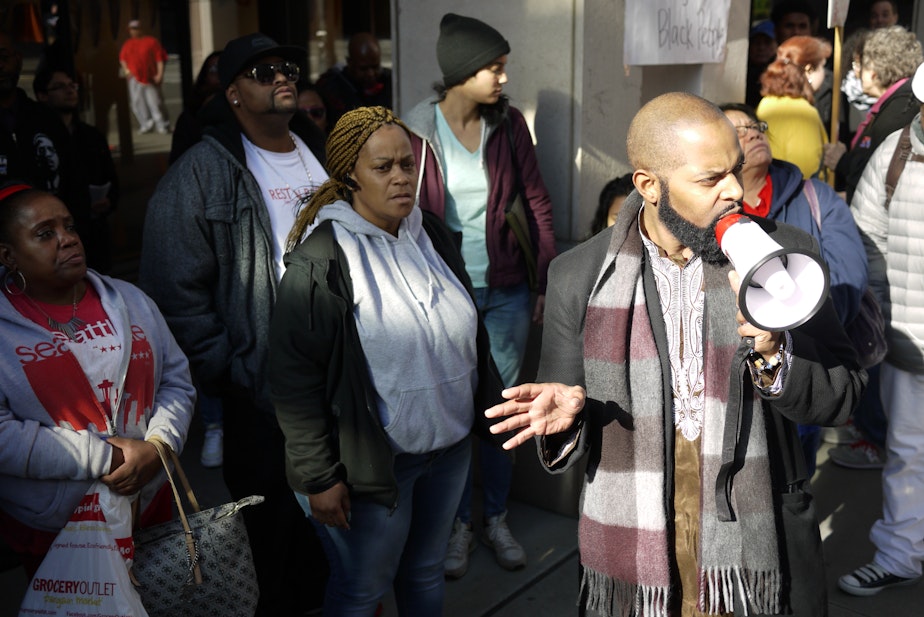‘I was scared’ shouldn’t exonerate cops, this initiative says

An organization advocating to reduce police violence launched a campaign for a measure that would change law enforcement training. De-Escalate Washington introduced the measure Thursday.
Andre Taylor is a chair of that group. His brother, Che Taylor, was fatally shot by Seattle police officers in 2016.
"We can't allow a situation where somebody has a feeling, or a subjective feeling, of threat and that justifies killing somebody," Taylor said.
The initiative would change language in the current law that states an officer shouldn’t be charged for using deadly force if it was in good faith and without malice.
"We are not against police, we're just pro-community,” Taylor said. “We have a real problem in our law that probably encourages bad behavior. Right now when an officer says, ‘I feel threatened’ or ‘I feared for my life,’ that's all he needs to say. The circumstances of the case don't come into place.”
Sponsored
The measure would also require police to receive more training in de-escalation and mental health interventions. Critics say officers already receive that kind of training.
Dave Hayes is a Republican state representative and a sergeant with the Snohomish County Sheriff’s Office.
"Is there ever going to be enough training in place to cover every single one of these situations?” Hayes said. “And as I’ve read that initiative, I felt that it was very subjective.”
Hayes also said there are other questions to consider.
“What is the goal we’re reaching for? Is it safe streets or is it prosecuting police officers?” he said.
Sponsored
Initiative supporters need to gather 259,000 signatures before December 29. It’ll then go to the Washington State Legislature, which can either suggest alternatives, do nothing or pass the measure as it is.

